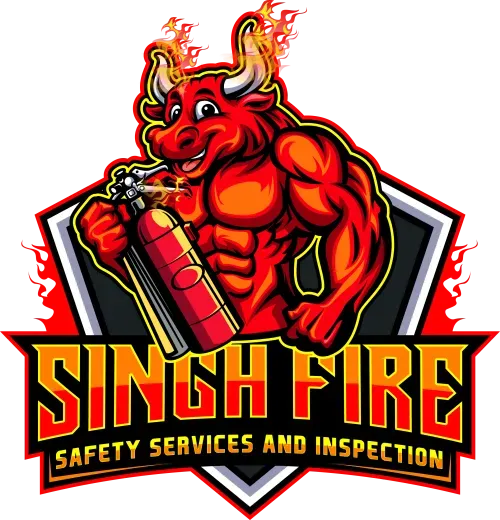ASTTBC-Certified Fire Inspection in Surrey
Approved by Surrey Fire Service | Annual Compliance Specialists | Serving all Town Centres
Professional Fire Inspection in Surrey is a mandatory requirement for all commercial, industrial, and multi-family residential buildings. Under the BC Fire Code and City of Surrey municipal bylaws, property owners are responsible for ensuring that all fire protection systems are inspected and tested annually by qualified professionals.
At Singh Fire, our ASTTBC-certified technicians provide comprehensive Fire Inspection services that meet the rigorous standards of the Surrey Fire Service (SFS). We ensure your documentation is complete, accurate, and ready for your next fire department audit.
Why Singh Fire for Your Surrey Inspection?
- SFS Compliance Expertise: We understand the specific reporting formats and technical requirements of Surrey Fire Prevention.
- Port Kells & Newton Industrial Hubs: We specialize in large-scale industrial inspections, including high-piled storage and warehouse sprinkler systems.
- Detailed Reporting: Every inspection includes a professional ASTTBC-certified report to satisfy insurance and municipal requirements.
Complete Fire Safety Testing in Surrey
Fire Alarm Systems
Annual inspection and testing of control panels, smoke detectors, and notification devices per CAN/ULC-S536 standards.
Sprinkler & Standpipe
Flow testing, tamper switch checks, and main drain tests for wet and dry systems in compliance with NFPA 25.
Emergency Lighting
Annual 30-minute to 90-minute battery discharge testing to ensure path-of-travel safety during power failures.
Surrey Neighbourhoods We Serve
We provide rapid on-site fire inspections across all Surrey town centres, including:
- Whalley (City Centre)
- Newton & Sullivan
- Guildford & Fraser Heights
- Fleetwood
- Cloverdale & Clayton
- South Surrey & White Rock Area
- Port Kells Industrial Zone
Surrey Fire Inspection FAQs
1. How often does the Surrey Fire Service require inspections?
In accordance with the BC Fire Code, all fire protection systems in Surrey must undergo a full annual inspection. Some systems, like fire pumps, require monthly checks.
2. Who is authorized to inspect fire systems in Surrey?
Only Qualified Persons are permitted. Surrey municipal regulations require technicians to be registered with the ASTTBC (Applied Science Technologists and Technicians of BC).
3. What is a "Knox Box" and do I need one in Surrey?
A Knox Box is a secure fire department lockbox. The Surrey Fire Service requires these on most commercial buildings to allow immediate entry during an alarm without damaging doors.
4. Do you inspect fire extinguishers in Surrey industrial sites?
Yes. We provide NFPA 10 compliant inspections, tagging, and hydro-testing for fire extinguishers in warehouses, retail spaces, and strata buildings.
5. Will a fire inspection lower my insurance premiums?
Most insurance providers require an annual fire inspection report to maintain coverage. Staying compliant helps prevent claim denials and may qualify you for better rates.
6. What happens if my building has a "Violation Ticket"?
If the SFS issues a violation, you must rectify the issues immediately. Singh Fire provides fast-response repairs to help you clear fire department orders quickly.
7. Does Singh Fire handle sprinkler flow testing?
Yes. We perform annual water flow testing and pressure checks to ensure your NFPA 25 sprinkler compliance in Surrey.
8. Are kitchen suppression system inspections required?
Yes. Commercial kitchens in Surrey must have their hood suppression systems inspected every 6 months according to NFPA 96 standards.
9. How long does a strata fire inspection take?
Timelines depend on the number of units and devices. A typical townhouse complex takes 1 day, while high-rise towers in Whalley may take 2-3 days.
10. Can I get a digital copy of my inspection report?
Yes. Singh Fire provides comprehensive digital reports that can be easily shared with the Surrey Fire Service, property managers, and insurance brokers.
Schedule Your Surrey Fire Inspection
Ensure your building is safe and compliant with the Surrey Fire Service. Contact our local team for a professional quote.
